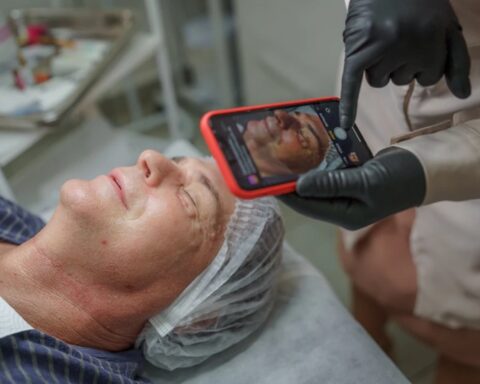London, July 11 (Mirror): Sleep is an important part of helping your body recover and replenish for the day ahead. Throughout our lives, how much sleep we need will vary, but the NHS has shared exactly how long we should aim for.
Young children who are still growing and developing need an early bedtime to rest each night, but adults can shave off a few hours with little impact. However, there is a fine balance of how much time we sleep and how we function on a day to day basis.
A bad night’s sleep every so often is normal. But, if you’re frequently finding yourself tired during the day, it could be a sign your not getting enough shut eye.
According to the NHS, a healthy adult usually needs around 7 to 9 hours of sleep. However, age, health and personal circumstances affect how much sleep we need, plus some people naturally sleep more than others.
Teenagers, children and babies need more sleep because they are still growing, but that varies, too. A new-born can sleep anywhere between 8 to 16 hours.
Broadly speaking, most adults should aim for at least seven hours of sleep a night. However, it’s not an exact science as sleep experts accept that people are unique and their sleep needs are just as individual.
| Age group | Age range | Recommended hours of sleep |
| Infant | 4-12 months | 12-16 hours (including naps) |
| Toddler | 1-2 years | 11-14 hours (including naps) |
| Preschool | 3-5 years | 10-13 hours (including naps) |
| School-age | 6-12 years | 9-12 hours |
| Teen | 13-18 years | 8-10 hours |
| Adult | 18 years and older | 7 hours or more |
There are a number of factors that determine how much sleep and recovery your body needs, such as activity level and overall health. Someone that doesn’t exert as much energy won’t need as much sleep as someone who is very physically active, even if they are the exact same age.
If you feel that seven hours just isn’t going to cut it, try eight or nine. Forcing yourself out of bed isn’t nice at the best of times, but doing it often enough because of getting too little sleep can affect your body’s systems and restorative functions.
Health and mental health conditions can contribute to sleep deprivation. This can include depression, anxiety, obstructive sleep apnoea and chronic pain.
Long-term sleep deprivation can take a more severe toll on your health leading to issues like reduced immunity, which can make it harder for your body to fight off infections. You could also face conditions like high cortisol.
This can contribute to high blood pressure and other health concerns, and having an increased appetite and cravings for sugar and carbs leading to weight gain.





